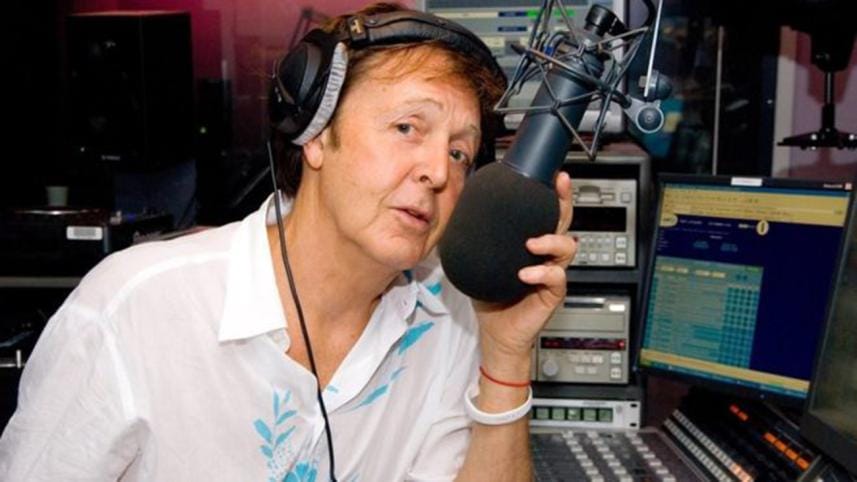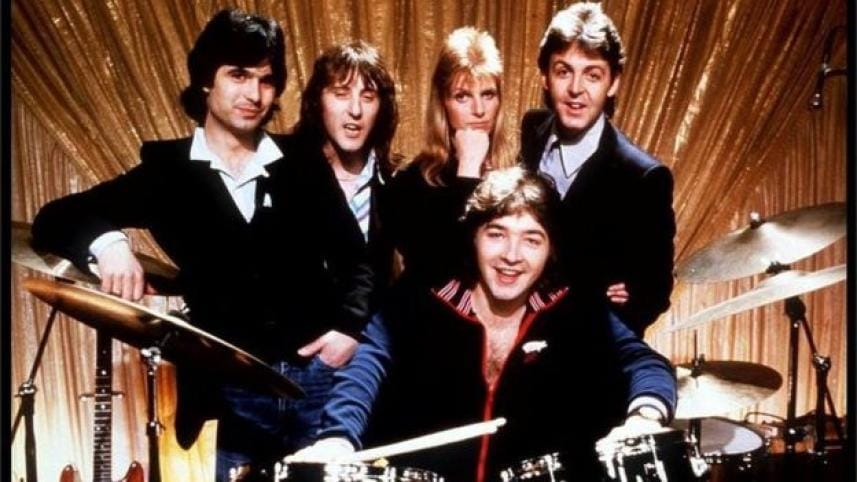McCartney ‘was depressed after Beatles breakup’

Sir Paul McCartney has talked candidly about the depression he suffered after The Beatles broke up, confessing he considered giving up music altogether.
Speaking to BBC Radio 4's Mastertapes, he said he had been at a loss when the band fell apart in acrimony in 1970.
"It was difficult to know what to do after The Beatles. How do you follow that?" he told John Wilson.
"I was depressed. You would be. You were breaking from your lifelong friends. So I took to the bevvies."
The Beatles officially split in 1970 with the release of Let It Be, but the seeds of their demise were sown a year earlier, when the band appointed Allen Klein as their manager, against Sir Paul's wishes.
Although Klein helped restructure the band's loss-making business, Apple, he also took a hefty share of their profits, and gave his own company the rights to press The Beatles' records in the US.
He further angered Sir Paul by hiring Phil Spector to overdub a choir, orchestra and additional drums on to Let It Be; and attempted to make EMI delay the release of the star's first solo album.
In order to divest himself of Klein's influence, Sir Paul had to sue his bandmates. The legal fall-out was the caustic agent that finally broke his bond with John Lennon.

"The business thing split us apart," said Sir Paul, adding that all the "heavy meetings" were "doing my head in".
He became so depressed that he did not know "whether I was still going to continue in music".
Eventually, he moved to Scotland - partly to make himself unavailable for the business meetings - and hit the bottle.
"I was far gone," he said. "It was Linda who said, 'you've got to get it together...' and that led to Wings."
"I liked the idea of a band. I wanted to go back to square one."
However, he admitted: "We were terrible. We weren't a good group. People said, 'Linda can't play keyboards,' and it was true.
"But John couldn't play guitar when we started [The Beatles]."
Mastertapes was recorded in Studio 3 of the BBC's historic Maida Vale, where the Beatles taped numerous radio sessions in the 1960s.
Among the audience were Brad Pitt, Paul Weller, Noel Gallagher, Martin Freeman, James Bay and Simon Pegg, as well as 100 members of the public, many of whom were able to put questions to Sir Paul.
Sir Paul talked about the writing of solo songs including Maybe I'm Amazed, Coming Up and Dance Tonight, as well as his Band on The Run and Sgt Pepper's.
The conversation also covered his recent collaborations with Kanye West, revealing: "We never appeared to write a song. A lot of what we did was just telling each other stories."
"People says he's eccentric... which you'd have to agree with."
And Sir Paul discussed how his relationship with John Lennon had improved in the months before the star's untimely death in 1980.
"I would make calls to John occasionally," he said. "We just talked kids and baking bread."



 For all latest news, follow The Daily Star's Google News channel.
For all latest news, follow The Daily Star's Google News channel.
Comments